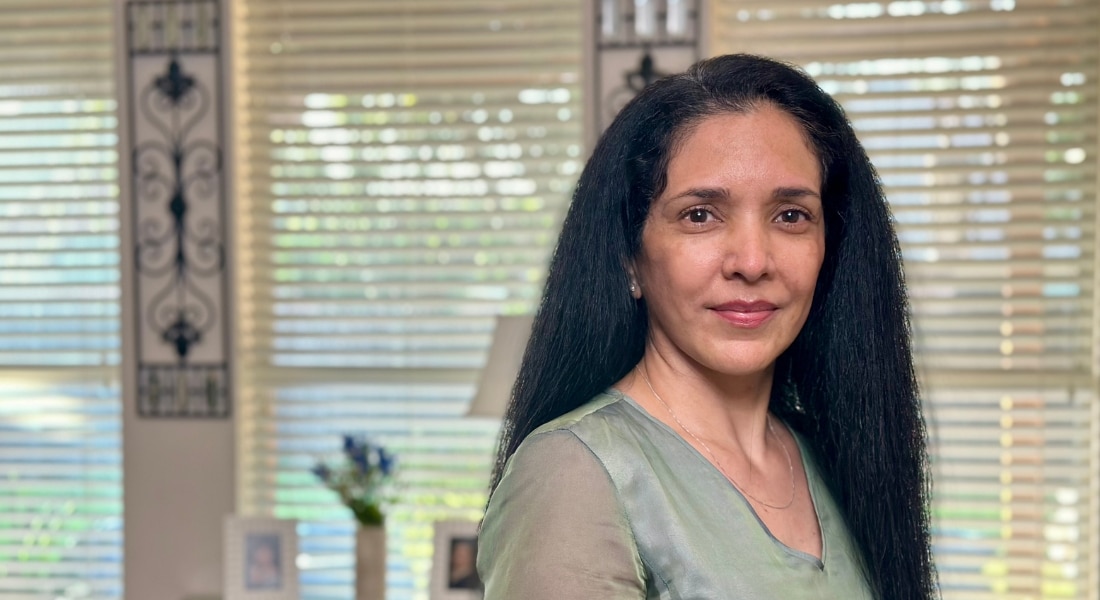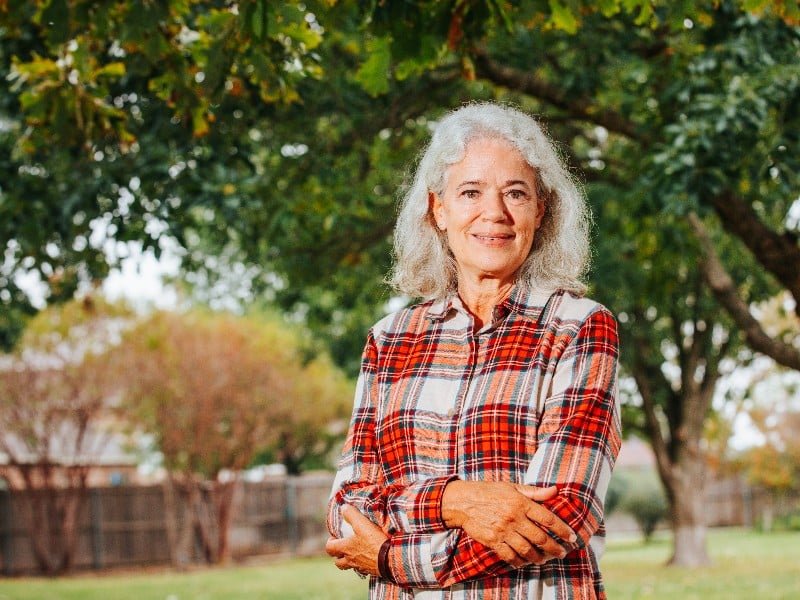As a former medical assistant, Erika Mora has more experience helping others sort out their health problems than navigating her own. That changed last May when a colonoscopy revealed she had stage one rectal cancer and she had to undergo surgery at Methodist Dallas Medical Center to treat it.
“I’ve asked patients lots of questions about their health, including about colonoscopies, and I thought I didn’t need one yet,” says the 49-year-old mother of five.
It’s easy to understand her reasoning, says Anand Lodha, MD, colorectal surgeon on the medical staff at Methodist Dallas. For a long time, the recommended age to begin regular screenings for colorectal cancer was 50.
But Erika is part of an alarming trend of younger patients being diagnosed with colorectal cancer, he explains. The uptick of cases among people in their 20s, 30s, and 40s is what pushed the American Cancer Society to lower the recommended screening age to 45.
“The thing that’s striking is that these younger patients don’t have the usual risk factors like genetic mutations or a family or personal history of polyps,” Dr. Lodha says. “There doesn’t seem to be any discernible cause.”
In Erika’s case, doctors may have caught the cancer earlier had she gotten a colonoscopy when she was 45, as prescribed by the new guidelines.
“They said the tumor that they found had probably been growing for six or seven years,” she says.
Now, nine months after a successful surgery, she wants to make sure other people learn from her story.
“I’m so blessed. My family and friends gave me a lot of support, the doctors were able to treat me, and I’ve basically had no negative side effects while recovering from that surgery,” she says. “Everyone should get a colonoscopy — even if your results come back normal. You just never know.”
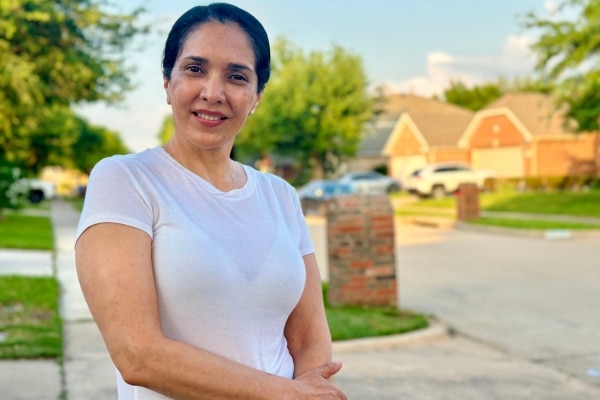
SIGNS AND SYMPTOMS
One of Erika’s friends had just been diagnosed with rectal cancer when Erika began noticing blood in her stools. That’s what prompted her to consult a gastroenterologist and get a colonoscopy. It was a crucial decision that led to the discovery of two polyps and a tumor.
“On one hand, I was very, very shocked, but I also knew it was going to be bad news as soon as they called me in to give me my results,” Erika says of the moment she learned the mass was cancerous. “No one in my family has colorectal cancer, although my mom has had polyps before.”
Erika was referred to Dr. Lodha, who says rectal bleeding and a family history of colon polyps are among the top reasons to check with a doctor.
“Digestive issues have all sorts of causes, so it doesn’t necessarily mean colorectal cancer,” Dr. Lodha adds. “But some things to look for are blood in the stools, changes in bowel movements, unexplained weight loss, and abdominal pain.”
Trust your gut to advanced GI care at Methodist by finding a digestive health specialist near you. Visit MethodistHealthSystem.org
SURGICAL TREATMENT
To come up with the most effective plan for Erika, Dr. Lodha presented her case to Methodist Dallas’ rectal cancer tumor board, a multidisciplinary group of specialists accredited by the Commission on Cancer and the American College of Surgeons.
“Cancer treatment is not a one-size-fits-all approach where we order radiation or chemotherapy,” Dr. Lodha says. “We have to look at everything, from CAT scans and MRIs to certain blood glycoproteins. We make sure no stone is left unturned before we proceed.”
The board agreed that Erika’s cancer could be treated with surgery alone and she would not need chemotherapy or radiation treatments.
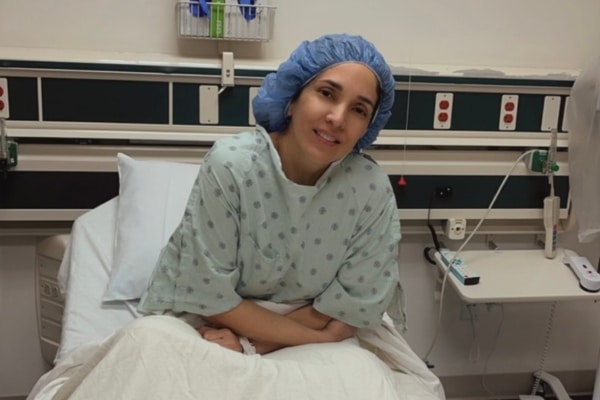
“Dr. Lodha and his team were wonderful and very supportive,” Erika says. “He answered all of my questions — and I had a lot.”
In June 2023, Dr. Lodha used the robotic da Vinci Surgical System to remove a section of Erika’s colon, along with about a dozen lymph nodes and a blood vessel that was feeding the tumor. To help heal the reconnected area, Dr. Lodha had to give Erika a temporary ileostomy bag. Through an opening in the abdomen, he attached a pouch to her small intestines to redirect digestive contents.
“The surgery went as planned,” Erika says. “I didn’t really have a lot of pain, and because of all the research I did, I adjusted to living with an ileostomy pretty quickly.”
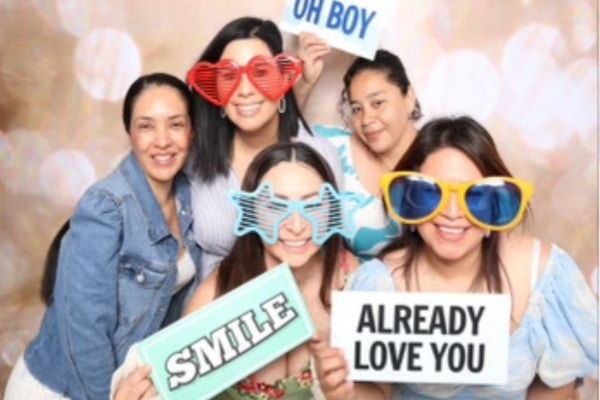
SUPPORT SYSTEM
Aside from friends and family, Erika was bolstered by the members of a monthly support group at Methodist Dallas. It was there that she met people experiencing the same challenges and milestones she was facing.
“I attend every month now,” says Erika, who’s made it her mission to encourage other cancer patients. “You’re stronger than you think. It’s easy to give in to the negative thoughts and depression, but there is hope.”
Dr. Lodha removed Erika’s ileostomy bag in December. At a follow-up appointment, she reported that she felt “back to normal.”
“I was lucky I didn’t experience any complications or issues after my surgery and ileostomy removal. Dr. Lodha told me only about 5% of patients have a recovery like that,” she adds.
Erika says she’s using the lessons she’s learned from this experience to make a real difference at the medical office where she works.
“When we ask callers questions about their last colonoscopy, we go into more detail now and make recommendations for screenings then and there,” she says. “It’s up to them to follow up, but it’s good to know that I’m doing something that could potentially help others.”

